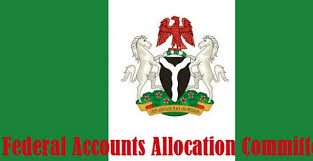FG deducts N415 billion in state allocations for debt payment.
To pay off their foreign debts, the federal government has taken more than N415 billion out of the money the states were supposed to get.
Based on information from the National Bureau of Statistics’ Federation Account Allocation Committee Disbursement reports, this was the case.
For the years 2019–2023, the money that was taken out came from the Federation Account that was given to the states.
Three primary methods of allocating monies are available within the existing legislative structure that oversees the federation account: the derivation principle, value-added tax distribution, and statutory allocation.
Based on the report’s research, the sub-nationals racked up deductions of N57 billion in 2019, N74 billion in 2020, and then increased to N86.2 billion in 2021, N78 billion in 2022, and N120.01 billion as of December 2023. The result showed a 110,000% increase, indicating the country’s massive debt in the face of falling revenues.
About N131.1bn was withheld from Lagos, making it the state worst affected by the deductions for foreign debt payment.
After Kaduna, N45.85 billion was withheld, and Cross River, N21.59 billion.
Approximately N18.25 billion, N14.76 billion, N10.31 billion, and N10.92 billion were withheld by Ogun, Oyo, and Edo, respectively.
Borno, Yobe, and Zamfara were the least hit states, with respective budgets of N1.55bn, N2.1bn, and N2.1bn.
Over the course of the year, the overall amount deducted stayed very consistent with the exception of January and February.
Even with all this debt, the federal government has continued to borrow money to pay for its spending.
The government’s heavy reliance on loans is evident from the total of N4.94 trillion borrowed from domestic sources in the first half of President Bola Tinubu’s presidency.
The increase in domestic indebtedness of N4.94tn occurred between June 2023 and December 31, 2023, going from N48.3tn to N53.3tn. External loans fell by $664 million over the six months, totaling $43.2 million in June and $42.4 million in December. However, when compared to September and December, when the figures were $41.5 million and $42.4 million, respectively, the figure rose by $901 million.
Nigeria also spent N7.8tn in 2023 paying off its debt, a 121 percent increase from N3.52tn the year before.
The government borrowed N2.29 trillion from the FGN bond market, according to an examination of domestic debts. This amount increased by 5.45 percent from N41.97 trillion recorded in June 2033 to N44.26 trillion as of December 31, 2023.
Savings bonds borrowed N8.47 billion, Sukuk loans N350 billion, and promissory notes N549.02 billion; Treasury bills borrowed N1.79 trillion.
An additional $541.5 million was borrowed through the external debt programme by the African Development Bank and the Exim Bank of China.
But the Tinubu administration had pledged to cut borrowing and put more effort into raising taxes, thus the ballooning debt is in direct opposition to those goals.




